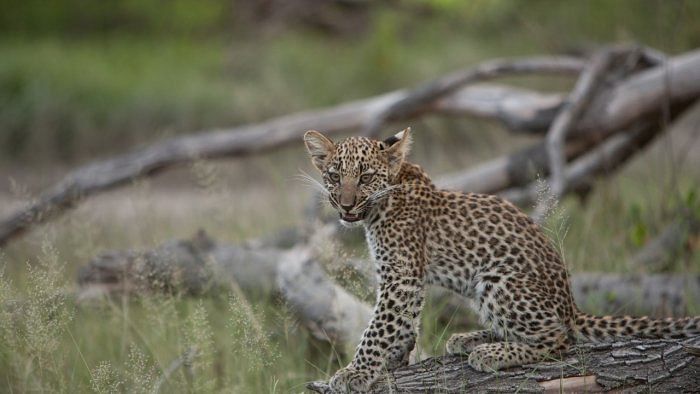
Two leopard cubs were spotted in the Asola Bhatti Sanctuary recently in a fresh example of how bold efforts of conservationists and the forest and wildlife department can help several wildlife species recover in urban jungles.
Forest department officials said the two cubs were caught on a camera trap a few days ago.
A video shared by the Bombay Natural History Society (BNHS) on its Instagram page showed a leopard cub emerging from a burrow inside the sanctuary.
Since mother felines do not travel long distances with newborns, the officials believe the sanctuary is their birthplace.
An official on Wednesday said this is first time that a cub leopard has been spotted in the jungles of Asola since leopard sightings began a few years ago.
The wildlife department and the BHNS had released a study in October, confirming the presence of eight leopards in the Asola Bhatti Wildlife Sanctuary, with enough evidence to suggest the large carnivore is making the urban forest its permanent home.
The sanctuary did not record any leopard sighting for many decades after 1940, as per the Gazetteer of Delhi.
Officials have also confirmed the presence of other mammals such as striped hyena, jungle cat, golden jackal, Indian hare, Indian boar, black buck, sambar deer, spotted deer, and hog deer among others.
The leopards of Asola share an area of just 32.71 sq km and probably also occupy the adjoining forest patches of the bordering Faridabad district.
The researchers said the sanctuary has a leopard population density of 4.5 per 100 km.
The leopard population density is 3.03 in the Bandhavgarh National Park, Madhya Pradesh; 3.1 in the Sariska Tiger Reserve, Rajasthan; 2.8 in the Dhachigam National Park, Jammu Kashmir; 12.04 in Chhattisgarh's Achanakmar Tiger Reserve and 13.41 in Mudumalayi Tiger Reserve, Tamil Nadu.
The sanctuary is the southern part of the Delhi Ridge, the northernmost stretch of the ancient Aravalli range which begins in Gujarat and extends across Rajasthan and Haryana.
It is also part of the Sariska-Delhi Wildlife Corridor which runs from the Sariska Tiger Reserve in Rajasthan to the Delhi Ridge.